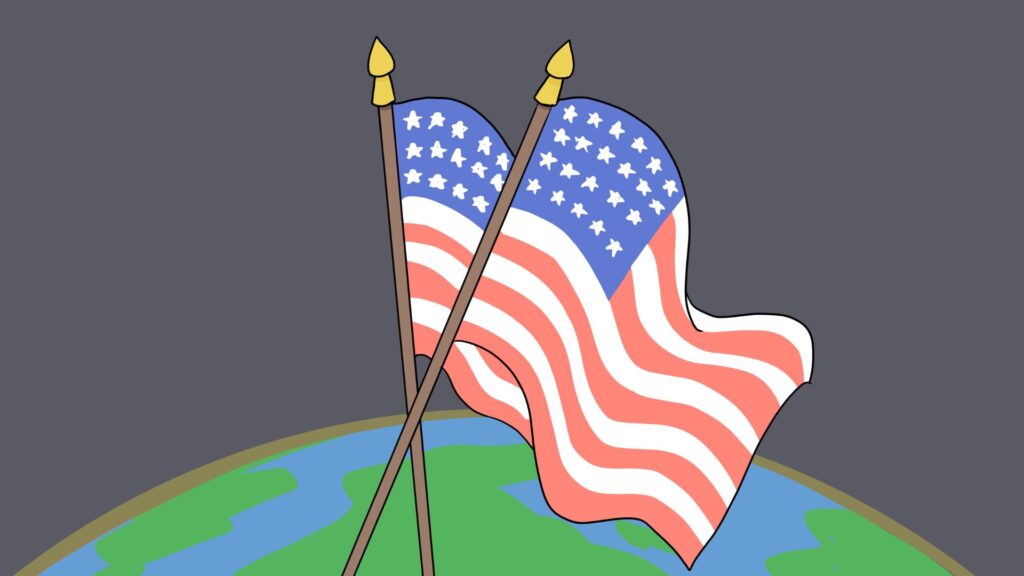Made In America’s Image: How U.S. Ideals Have Shaped The World
The 19th and 20th centuries saw the United States grow from 13 states to an imperialist giant spread across three continents.
Patriots who had fought for natural rights in Massachusetts in 1776 were constructing a canal in Panama, repressing revolutions in Asia and taming the Great Plains in the Midwest.
After World War I and II, the U.S. became one of the world’s main power brokers.
But how has the world been shaped by a country founded on the ideals of democracy and free markets? And have those ideals done more harm than good?
World War II left most of Europe bankrupt and unable to control their former colonies.
This put the U.S. in a precarious position—it could either encourage democracy (at the risk of losing support from political parties in favor of the Soviet Union) or repress independence movements alongside.
While most colonies gained independence, the American idea of democracy hasn’t always led to freedom.
Countries such as Russia, Singapore and India have shown that authoritarian elements can arise in democracies, curbing human rights and infringing on personal liberties.
On the other hand, the U.S. has established organizations to strengthen international relationships.
In 1945, it launched the United Nations, an organization aimed at fostering global cooperation. This forum gave newly-independent colonies equal footing with European powers. They advocated for decolonization efforts and demanded assistance to develop their countries.
The U.S. also founded the International Monetary Fund and the World Bank, organizations that now loan billions of dollars to development projects throughout the globe.
Critics of these institutions point out two major concerns for developing nations.
The U.N. Security Council is headed by developed nations; the IMF pressures indebted nations to pass legislation, such as cutting social programs or increasing taxes, to continue receiving financial support.
Opponents of international regimes view this as an effort to maintain dominance over developing nations rather than a genuine attempt at true global representation.
However, law and justice are incredibly apparent in the U.S., with courts existing at each level of governance within the country.
The U.N. established the International Court of Justice for member states to resolve civil disputes and the International Criminal Court to indict individuals for heinous crimes, including genocide, slavery, murder, rape and sex trafficking.
Although both organizations are major steps toward universal justice, they’re riddled with criticisms.
Many African nations assert the ICC only enforces charges for individuals in weaker, less developed nations. The trend was broken with the conviction of Vladimir Putin, but the ICC continues to evade the war crimes committed by the United Kingdom and the U.S. in Iraq.
While the debate surrounding the positive and negative attributes of American ideals continues, one cannot deny the influence they hold in the modern world.

